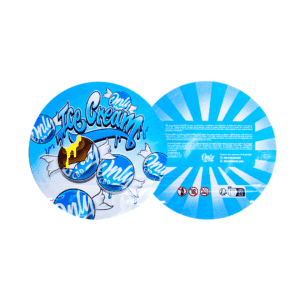At OnlyCBDFans.com, we're dedicated to offering high-quality CBD products, including flowers, resins, trim, and mini buds. As CBD grows in popularity, it's critical to base our decisions on solid scientific evidence. In this article, we'll explore what science has revealed about CBD, from its therapeutic benefits to its safety and efficacy.
What is CBD and How Does It Work?
Definition of CBD and its Relationship with the Endocannabinoid System
- CBD (Cannabidiol): A non-psychoactive compound derived from hemp, different from THC.
- Endocannabinoid system (ECS): A crucial system in the human body that regulates functions such as pain, inflammation, mood, and sleep. CBD interacts with the CB1 and CB2 receptors in this system, modulating various physiological responses.
Main Areas of Scientific Research on CBD
1. CBD and Pain Management
Studies on CBD as an Analgesic
- Preclinical ResearchAnimal studies have shown that CBD can reduce pain by interacting with receptors in the endocannabinoid system, modulating pain perception.
- Human StudiesPreliminary clinical trials suggest that CBD may be effective in treating chronic pain, such as arthritis and neuropathy, although more research is needed to confirm these effects.
Using CBD Flowers and Resins
- CBD flowers: Vaporized, they can provide fast pain relief.
- CBD Resins: Concentrated and potent, ideal for creating topical ointments or oils.
2. CBD and Anxiety
Anxiolytic Effects of CBD
- Mechanism of ActionCBD influences serotonin receptors in the brain, which play a key role in regulating mood and anxiety.
- Scientific EvidenceHuman studies have shown that CBD can reduce anxiety in stressful situations, such as public speaking, without the common side effects of traditional anti-anxiety medications.
Using CBD Trim and Mini Buds
- CBD Trim: Useful for preparing relaxing infusions that can help reduce anxiety.
- Mini CBD Buds: Perfect for vaporization, offering fast relief from anxiety.
3. CBD and Neurological Health
Research on CBD in Neurological Diseases
- EpilepsyCBD has been shown to be effective in reducing seizures in people with treatment-resistant epilepsy, leading to the approval of a CBD-based medication by the FDA in the United States.
- Neurodegenerative DiseasesPreliminary research suggests that CBD may have neuroprotective effects, potentially beneficial in diseases such as Alzheimer's and Parkinson's, although these studies are in their early stages.
4. CBD and Mental Health
Effects of CBD on Depression and Other Mental Disorders
- Mood ModulationCBD can act on serotonin receptors, improving mood and providing an antidepressant effect.
- Evidence in HumansAlthough research is still limited, some studies suggest that CBD may be useful as a complementary treatment for depression and other mood disorders.
5. Safety and Side Effects of CBD
CBD Safety Profile
- Side EffectsStudies have shown that CBD is well tolerated, with minimal side effects such as fatigue, changes in appetite, and diarrhea. These effects are typically mild and dose-related.
- Drug InteractionsCBD can interact with certain medications, so it's important to consult a doctor if you're taking other treatments.
Considerations and Limitations in CBD Research
Lack of Long-Term Studies
- Need for More ResearchAlthough preliminary evidence is promising, more long-term studies and large-scale clinical trials are needed to fully understand the effects of CBD and its long-term safety.
Variability in Product Quality
- Importance of Quality ProductsCBD quality can vary between products. At OnlyCBDFans.com, we offer high-quality flower, resin, trim, and mini buds, ensuring you get the best possible results.
Conclusion: What Science Says About CBD
CBD research is constantly evolving, and while several benefits have already been identified, much remains to be discovered. At OnlyCBDFans.com, we are committed to offering science-backed CBD products, including Flowers, Resins, Trim, and Mini Buds. If you're considering incorporating CBD into your wellness routine, it's important to do so with quality products and base your decisions on the available scientific evidence.
























